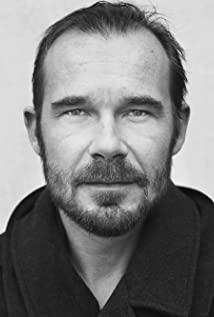Hannah Arendt, speaking about Eichmann's trial, once defined the crimes of their Nazi accomplices as "banal evil". They all looked like ordinary people, no different from our kind, well-behaved, hard-working, breadwinner neighbors. Their only sin seems to be blindly following the orders of their superiors and lacking the ability to self-reflect. The unprecedented political power of the Nazis created a state of invalidation of reflexive judgment in the territories it occupied. In this state, those ordinary people who are accustomed to the mediocre state have become impossible to even reflect on their daily morals, and their moral and ethical bottom lines will only fall step by step in the face of the aggressive Nazi politics.
At first glance, it may seem that banal evils are just a matter of Nazi accomplices, not those of us who are kind. Adorno said: "After Auschwitz, writing poetry is barbaric". The significance of Nazism is never that it was merely a sin of the German Nazi Party headed by Hitler, but that it is in fact deeply rooted in the human nature of all of us. All people in this world should be ashamed for their inability to stop the Nazis from appearing and committing violence.
"No man is an island that
is self-sufficient.
Every man is a piece of the continent, a
part of the whole.
If the sea washes away a piece,
Europe will be reduced,
as a headland loses a corner,
as your friend or your own domain loses A piece of
anyone 's death is my loss,
because I am a member of the human race,
so don't ask for whom the death knell tolls,
it tolls for you."
-John Dorn There is,
however, another kind of mediocrity. Evil, a crime not exclusively for Nazi accomplices, but for shrewd good people. The ferocity of its sins is exactly proportional to the clarity of people's reason. All the goodness and rationality of people seem to be adding fuel to this unspeakable fire of evil.
In director Pieter Kuijpers' film Riphagen (2016), he retells the true story of Andries Riphagen, the biggest Dutch traitor in the Netherlands during World War II. As an accomplice of the Nazis, this gentleman transported countless Dutch Jews to Polish concentration camps, and at the same time enriched his personal pockets and made a fortune in the war. After the war, he was able to cunningly escape the trial of the war court and escaped to Argentina for asylum. of Switzerland.
If demons do exist in this world, it doesn't necessarily mean chaos, violence, and madness. Because these belong to the level we can intuitively feel, and the fallen angel is on the spiritual level, it is not enough to understand him only by focusing on the superficial effects he brings. The devil is likely to hide behind the "rational thinking" and civilization we are accustomed to. In his Modernity and the Holocaust, Sigismund Bowman bluntly stated: "Modern civilization is not a sufficient condition for the Holocaust; but it is undoubtedly a necessary condition. Without modern civilization, the Holocaust is unimaginable. It is precisely The rational world of modern civilization makes the Holocaust conceivable.” (p.18) The rationality of modern civilization, along with the rapid progress of natural science, has promoted the refinement of the social division of labor, and everyone in the entire social machine has a role to play. Act as a screw, just do your part. This is the reason for what Arendt calls the banal evil. Because the individual as a screw does not need to reflect and judge the instructions, but only needs to execute it, and it seems that only executing his own duties has nothing to do with evil. This kind of mediocre evil is just a matter of being attributed to those accomplices. It seems that we outsiders have nothing to do with it. We actually do not realize that we rational people who are "harmless to humans and animals" are actually just the coins of evil. the other side. The movie "Riphagen" tells the story of a big villain getting a good death, and this "politically incorrect" happens to be a slap in the face of our rational self-feeling good.
The movie tells us that the reason why a large number of Jews were successfully sent to Polish concentration camps and ended their lives in incinerators and gas chambers was not so much because of the ferocity of the Nazis and the shameless betrayals of traitors, but because of the survival they depended on. The rational "shrewdness". During a search of Jewish neighborhoods, Ripphagen found an elderly Jewish woman hiding in a civilian attic and found packets of diamonds in her hair. He cunningly gained her confidence in the name of asylum, and through her in the same way he gained the confidence of the Jewish circles, letting them hand over their possessions to him for safekeeping. The "shrewd" Jews believe in the business logic of fair trade, believe that efforts should be rewarded, and believe that temporary compromises will bring security and greater interests in the future. Whether it was the old Jewish woman who was deceived and betrayed her compatriots and finally committed suicide in grief and anger, or the Jewish family who finally went to disaster with her whole family, or the traitor Beje, who was threatened with the safety of her family and took the initiative to betray the rebel gang, they were all affected by seduced by the illusion of reason. In the same way, the protagonist of this film, Jan, also died of this rational "shrewdness": he had already caught Riphagen in a Belgian monastery and could execute justice with a gun at any time. However, he couldn't stand the temptation of reason, thinking that if Liphagen was temporarily spared, he would be allowed to testify in court, thereby saving the Jewish woman Beje, but unexpectedly, he was instantly countered by a strong opponent and was finally strangled to death. Good people don't live long, and disasters live for thousands of years, which is embarrassing. However, who can say that it is not the "shrewdness" and "calculation" of these good people that have allowed themselves and others to die and the perpetrators' intrigues to succeed?
In his Modernity and the Holocaust, Bowman once linked the operation and mechanism of the Nazis in the Holocaust to the principles of eugenics. Every individual with the rationality of modern civilization is actually like a flower and grass growing in nature. Every flower and grass takes root on the ground and does everything it can to obtain sunlight, absorb water and soil nutrients for its own growth. The same is true of rational people under modern civilization. All interpersonal relationships are basically simplified to interests. The pursuit of the greatest interests in life is the greatest, although this interest is not limited to economic interests. The Nazi ruler as the designer of the upper classes of society is like the gardener of this big garden. They want to turn society into the so-called ideal German state, that is, to get rid of the Jews, wanderers, homosexuals and communists who are called "weeds" and "vermin". In this genocide, what they mainly relied on was not pure violence from the Gestapo, but the cooperation and obedience of the victims themselves. In the face of the aggressive Nazi power, every victim repeatedly made the so-called "best choice", so that the moral and human bottom line was continuously defeated.
In the film, when Riphagen threatens to send Beje's family to a concentration camp in Poland, she doesn't hesitate to confess to members of the Resistance she knows; when Sanders and they've managed to find her, When Riphagen could be convicted immediately with only her testimony, the latter who was behind bars temporarily escaped and continued to use this trick to blackmail her, and she immediately took all the charges on her own. The communist Sanders and his peers are being played by Ripphagen solely because the latter has mastered their weakness: they are more afraid of their own failure and their own failure than justice. The fact that they are incompetent, it will make them lose their heads among their peers, thereby ruining their own careers. They are just "smart people" who only care about their own interests. It is the rational choice of these "smart" people that makes this just act of hunting down the culprit of the Nazis absurd. What the movie shows us is that the rationality nurtured by modern civilization happens to be the most powerful weapon for the Nazis to kill and rape people to escape punishment.
View more about Riphagen reviews











